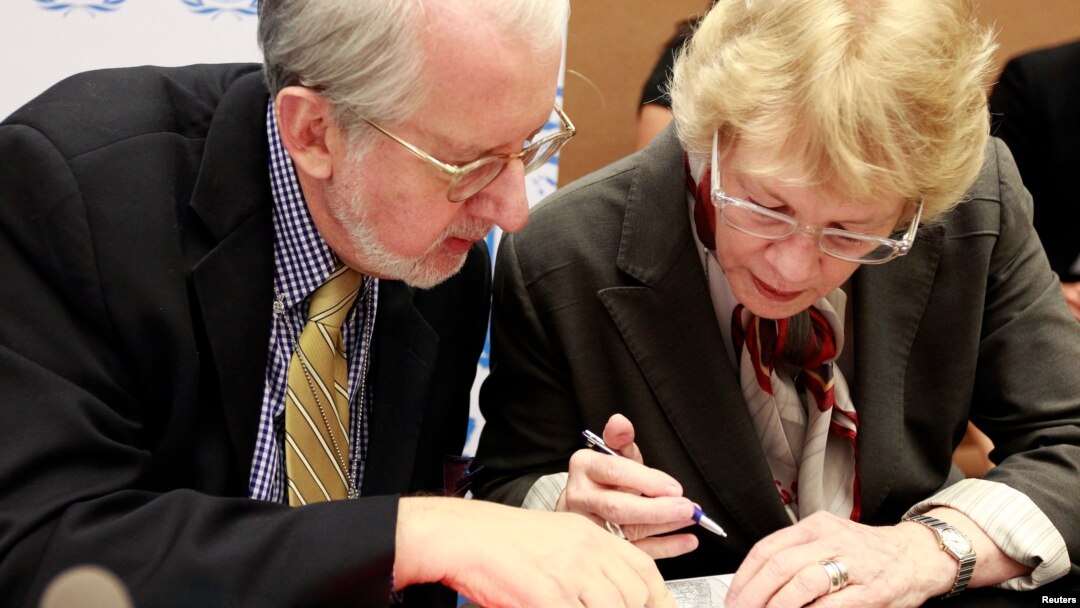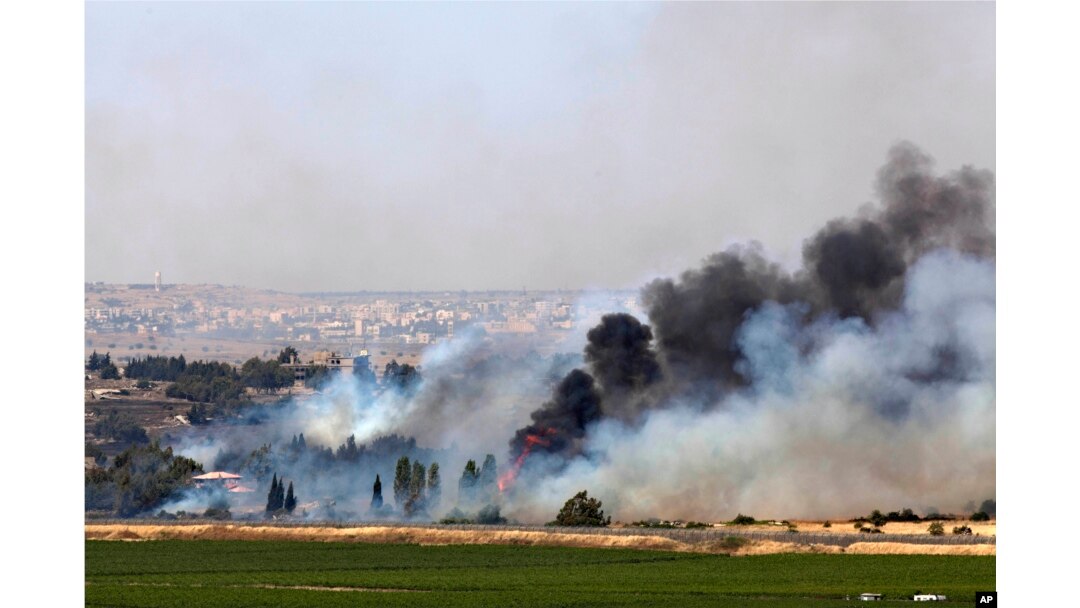UNITED NATIONS —
A United Nations report says there are “reasonable grounds” to believe a limited amount of chemical weapons have been used in Syria.
Findings of the U.N. Commission of Inquiry on Syria were released Tuesday just hours ahead of a statement from French Foreign Minister Laurent Fabius that his government is certain the chemical agent sarin has been used several times in that conflict-torn country.
The commission's report says there is not enough evidence to determine which chemical agents have been used in Syria or who deployed them. For that to be established, it says, testing must be carried out on victims and from the site of the alleged attacks.
Until now, the Syrian government has stalled U.N. investigators wanting to visit multiple sites of alleged chemical weapons attacks inside Syria, urging investigation of only one location where the government alleges opposition forces used chemical agents.
In France, Fabius said his government has analyzed samples collected by two French journalists who spent several months reporting in Syria, and that the tests confirm the use of sarin gas — a potent chemical nerve agent.
France’s U.N. Ambassador Gérard Araud said Paris gave the evidence to Åke Sellström, the man in charge of the U.N.’s chemical weapons investigation for Syria.
“We have evidence of the use of sarin gas in Syria," he said. "We have evidence. We have transmitted the evidence to Mr. Sellström. We have samples which show that sarin gas has been used in Syria in a repeated and local way.”
While the Commission of Inquiry report said it received allegations concerning the use of chemical weapons by both parties, it said the majority concern their use by Syrian government forces. The commission's chairman Paulo Pinheiro also stressed the human toll of the two-year conflict as he presented findings to the U.N. Human Rights Council.
"Crimes that shock the conscience have become a daily reality," said Pinheiro. "Humanity has been the casualty of this war. Syria needs not a military surge, Syria needs a diplomatic surge. We cannot continue to sit idly by and watch this catastrophe unfold."
Britain’s U.N. Ambassador Mark Lyall Grant told reporters his government has credible evidence that chemical weapons have been used repeatedly by the government in small quantities.
“We are deeply concerned and shocked by increasing evidence of use — limited use, but nonetheless use — and repeated use of chemical weapons by the Syrian regime in Syria," said Grant. "And we have brought it to the attention of the U.N. investigation and we will continue to bring incidents, allegations, evidence, as and when we get it to the attention of Mr. Sellström and his investigation team.”
Grant added that his government has no evidence the opposition either possesses or has used chemical weapons.
In addition to the findings that chemical weapons have been used in Syria, the commission also chronicled grave human rights violations including massacres, murder, torture, rape and forced displacement. U.N. Secretary-General Ban Ki-moon’s spokesman said the U.N. chief found the “catalog of atrocities sickening and staggering,” and urged an accelerated diplomatic push to end the bloodshed.
On Wednesday in Geneva, diplomats from the United States, Russia and the United Nations will meet to work on preparations for an international conference on Syria aimed at opening talks between representatives of the government and the opposition.
Findings of the U.N. Commission of Inquiry on Syria were released Tuesday just hours ahead of a statement from French Foreign Minister Laurent Fabius that his government is certain the chemical agent sarin has been used several times in that conflict-torn country.
The commission's report says there is not enough evidence to determine which chemical agents have been used in Syria or who deployed them. For that to be established, it says, testing must be carried out on victims and from the site of the alleged attacks.
Until now, the Syrian government has stalled U.N. investigators wanting to visit multiple sites of alleged chemical weapons attacks inside Syria, urging investigation of only one location where the government alleges opposition forces used chemical agents.
In France, Fabius said his government has analyzed samples collected by two French journalists who spent several months reporting in Syria, and that the tests confirm the use of sarin gas — a potent chemical nerve agent.
France’s U.N. Ambassador Gérard Araud said Paris gave the evidence to Åke Sellström, the man in charge of the U.N.’s chemical weapons investigation for Syria.
The Latest Images from Syria
“We have evidence of the use of sarin gas in Syria," he said. "We have evidence. We have transmitted the evidence to Mr. Sellström. We have samples which show that sarin gas has been used in Syria in a repeated and local way.”
While the Commission of Inquiry report said it received allegations concerning the use of chemical weapons by both parties, it said the majority concern their use by Syrian government forces. The commission's chairman Paulo Pinheiro also stressed the human toll of the two-year conflict as he presented findings to the U.N. Human Rights Council.
"Crimes that shock the conscience have become a daily reality," said Pinheiro. "Humanity has been the casualty of this war. Syria needs not a military surge, Syria needs a diplomatic surge. We cannot continue to sit idly by and watch this catastrophe unfold."
Britain’s U.N. Ambassador Mark Lyall Grant told reporters his government has credible evidence that chemical weapons have been used repeatedly by the government in small quantities.
“We are deeply concerned and shocked by increasing evidence of use — limited use, but nonetheless use — and repeated use of chemical weapons by the Syrian regime in Syria," said Grant. "And we have brought it to the attention of the U.N. investigation and we will continue to bring incidents, allegations, evidence, as and when we get it to the attention of Mr. Sellström and his investigation team.”
Grant added that his government has no evidence the opposition either possesses or has used chemical weapons.
In addition to the findings that chemical weapons have been used in Syria, the commission also chronicled grave human rights violations including massacres, murder, torture, rape and forced displacement. U.N. Secretary-General Ban Ki-moon’s spokesman said the U.N. chief found the “catalog of atrocities sickening and staggering,” and urged an accelerated diplomatic push to end the bloodshed.
On Wednesday in Geneva, diplomats from the United States, Russia and the United Nations will meet to work on preparations for an international conference on Syria aimed at opening talks between representatives of the government and the opposition.



